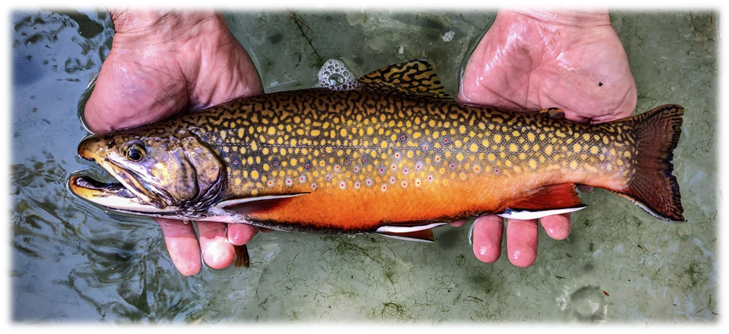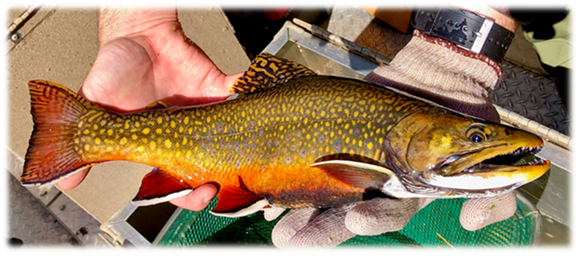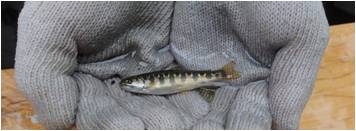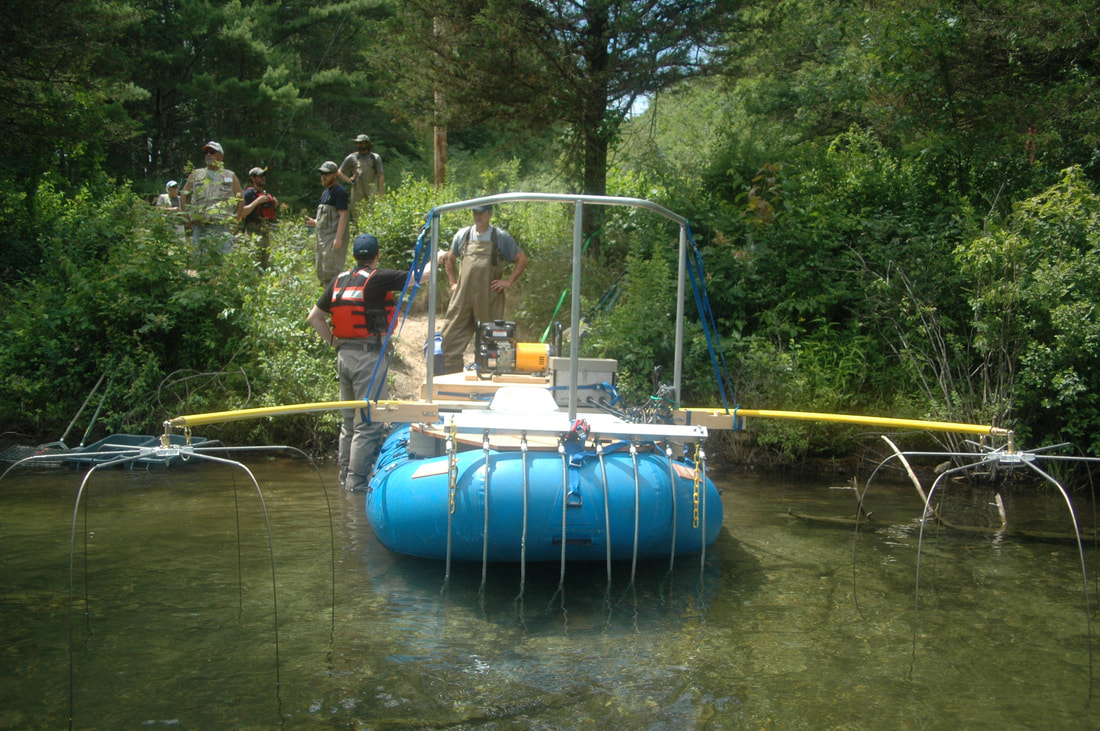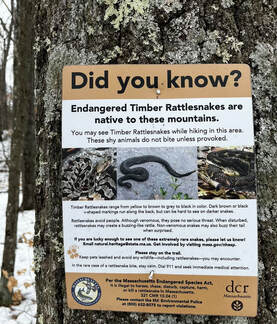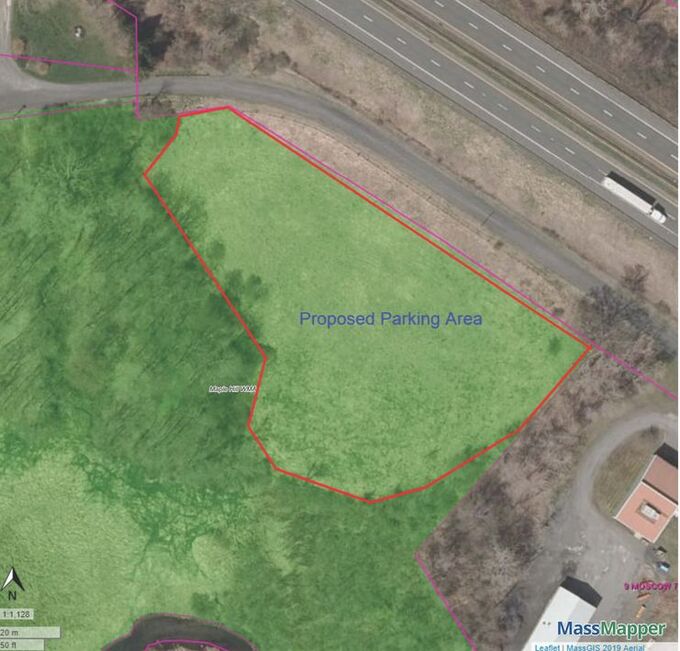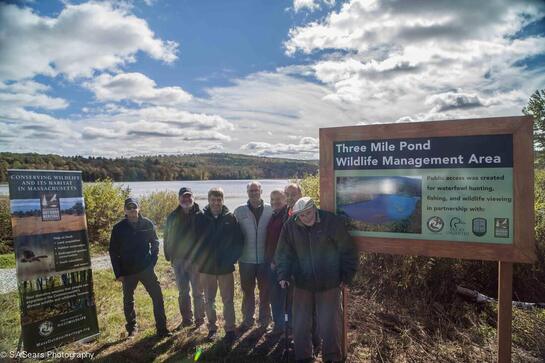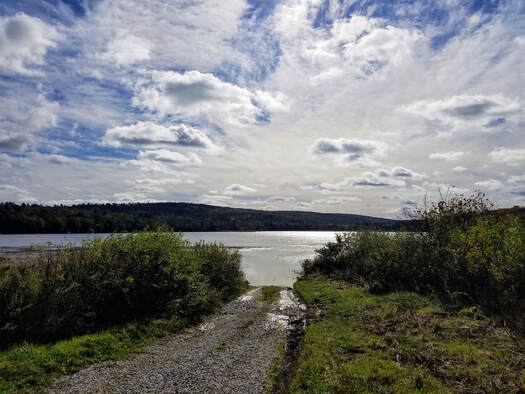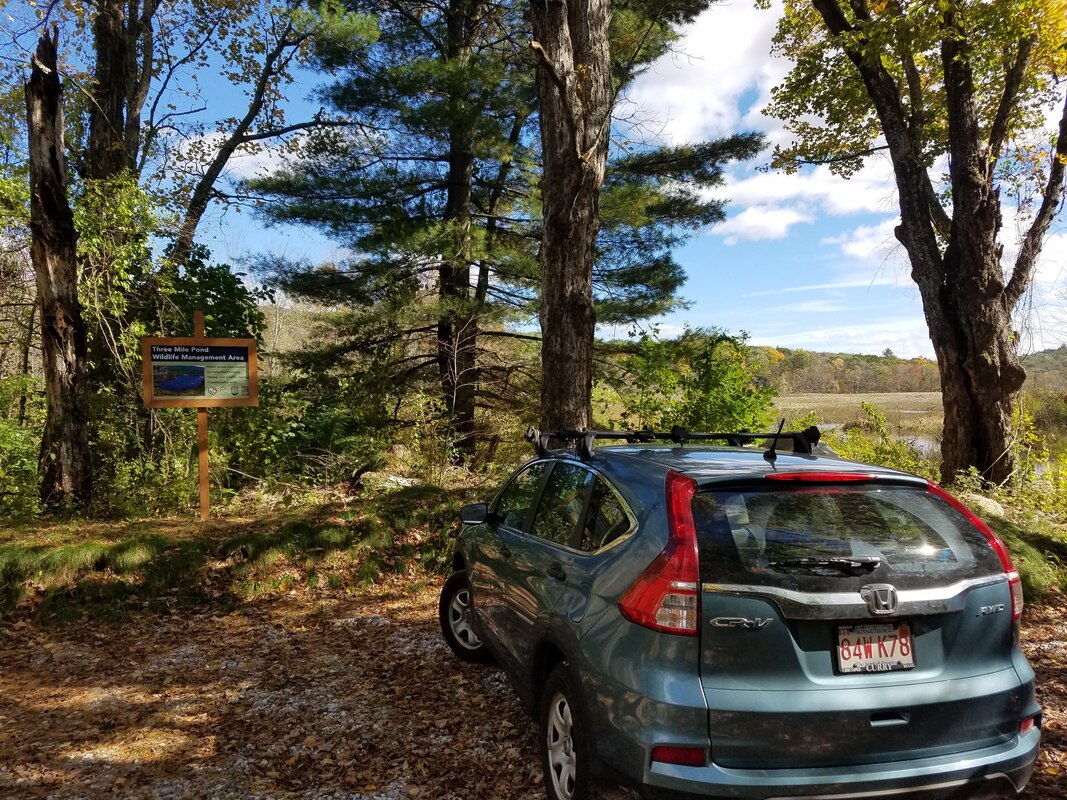Spadefoot Genetics
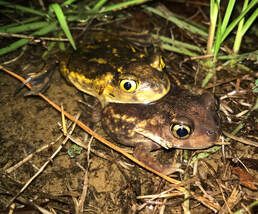
Conservation Genetics of the Eastern Spadefoot: A Statewide Pilot Study
Massachusetts’ populations of Eastern Spadefoot (Scaphiopus holbrookii) occur primarily in the southeastern counties, but scattered populations also exist in Essex and Middlesex counties and within the Connecticut Valley region. Spadefoots breed in highly ephemeral wetlands (vernal pools, dune swales, ditches) that flood for periods of weeks in response to major rainfall events. Most populations in Massachusetts and elsewhere in southern New England are isolated, small, and vulnerable to a number of threats, including habitat loss, pathogens, road mortality, and changing hydrological regimes.
MassWildlife proposed a pilot study of the population genetics of Eastern Spadefoot in Massachusetts to the Foundation’s board, to help evaluate statewide diversity, better understand historical connectivity and dispersal patterns, and develop or refine geographic management units, and this project was recently approved for funding.
With partners and contractors under the direction of the State Herpetologist, MassWildlife will conduct a literature review on spadefoot genetics, prepare a protocol for tissue collection, and design and implement plans to collect samples during the period 2023–2025. MassWildlife staff will also convene regular working group meetings with counterparts in Connecticut and Rhode Island to discuss possible development of a joint regional study throughout southern New England. If feasible, MassWildlife also will establish a contract with a genetics lab to evaluate genetic diversity, relatedness, connectivity, and divergence history using microsatellites or a more suitable methodology. MassWildlife will then use the results to better inform conservation planning and population management and restoration activities for this charismatic species.
See below in the Endangered Species Section, for a description of additional recent work the Foundation has funded to benefit the Spadefoot in Massachusetts
Massachusetts’ populations of Eastern Spadefoot (Scaphiopus holbrookii) occur primarily in the southeastern counties, but scattered populations also exist in Essex and Middlesex counties and within the Connecticut Valley region. Spadefoots breed in highly ephemeral wetlands (vernal pools, dune swales, ditches) that flood for periods of weeks in response to major rainfall events. Most populations in Massachusetts and elsewhere in southern New England are isolated, small, and vulnerable to a number of threats, including habitat loss, pathogens, road mortality, and changing hydrological regimes.
MassWildlife proposed a pilot study of the population genetics of Eastern Spadefoot in Massachusetts to the Foundation’s board, to help evaluate statewide diversity, better understand historical connectivity and dispersal patterns, and develop or refine geographic management units, and this project was recently approved for funding.
With partners and contractors under the direction of the State Herpetologist, MassWildlife will conduct a literature review on spadefoot genetics, prepare a protocol for tissue collection, and design and implement plans to collect samples during the period 2023–2025. MassWildlife staff will also convene regular working group meetings with counterparts in Connecticut and Rhode Island to discuss possible development of a joint regional study throughout southern New England. If feasible, MassWildlife also will establish a contract with a genetics lab to evaluate genetic diversity, relatedness, connectivity, and divergence history using microsatellites or a more suitable methodology. MassWildlife will then use the results to better inform conservation planning and population management and restoration activities for this charismatic species.
See below in the Endangered Species Section, for a description of additional recent work the Foundation has funded to benefit the Spadefoot in Massachusetts
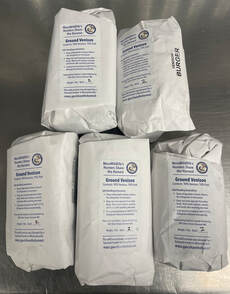
MassWildlife's Hunters Share the Harvest Program
MassWildlife's Hunters Share the Harvest program provides the opportunity for generous hunters to donate and share wild game meat such as venison to Massachusetts residents in need. Regulated hunting is a safe activity that brings communities together through the sharing of food, skills, and time spent outdoors with nature. Licensed hunters play an important role in wildlife management in Massachusetts, and now successful hunters can help combat hunger and food insecurity in their communities by donating venison. A recent study by The Greater Boston Food Bank shows that nearly one-third of adults in Massachusetts are facing food insecurity, a number that has grown during the pandemic. Free range, organic venison is a lean, healthy protein with a low carbon footprint that already feeds thousands of licensed hunters and their families across Massachusetts each year. MassWildlife’s Hunters Share the Harvest program provides an outlet for hunters to help address food insecurity and provide hunger relief in their communities, while supporting conservation through wildlife management. Hunters who are interested in donating deer and anyone who wants to contribute money to offset processing and packaging costs can learn more at Mass.gov/SharetheHarvest. Your donation will help cover the processing and packaging costs for donated meat. A donation of $25 will provide about 50 servings of meat for families in need. MassWildlife plans to expand donation and distribution locations in the coming years.
Habitat Restoration or Enhancement
Stafford Hill Wild life Management Area, Cheshire
In 2009, MassWildlife, in partnership with the USDA's Natural Resources Conservation Service and the Berkshire Natural Resources Council, restored two separate high-priority tracts totaling approximately 100 acres of upland wildlife habitat to their pre-1960 early-successional (i.e., young forest and open grassland) condition on this 1,592-acre Wildlife Management Area in Berkshire County. After the cutting was complete and the young forest began to regenerate, the resulting wildlife habitats, full of dense sprouts of aspen, along with some retained black cherry and white ash trees, were still separated by thick, barbed-wire-choked hedgerows and tree lines that proved too expensive to remove. Monies provided by the Massachusetts Outdoor Heritage Foundation enabled MassWildlife to extend the original project scope and remove the hedgerows between the now-open grassland and shrub habitats.
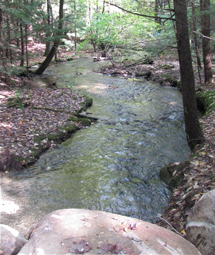
Gulf Brook Conservation Area, Pepperell
This project restored and reconnected native Brook Trout habitat by replacing two old pipe culverts with pre-cast, open-bottomed culverts and restoring the natural streambed. Brook Trout can now move unimpeded between Gulf Brook and the Nissitissit and Nashua rivers as seasonal and annual changes in water temperature, dissolved oxygen, and other conditions that they need to survive and spawn dictate. Massachusetts Outdoor Heritage undertook this restoration in partnership with MassWildlife, the Frank Nims Family Trust, the Stephen Quill Family Foundation, the Nashua River Watershed Council, the Greater Boston and Squannatissit chapters of Trout Unlimited, and the Town of Pepperell.
This project restored and reconnected native Brook Trout habitat by replacing two old pipe culverts with pre-cast, open-bottomed culverts and restoring the natural streambed. Brook Trout can now move unimpeded between Gulf Brook and the Nissitissit and Nashua rivers as seasonal and annual changes in water temperature, dissolved oxygen, and other conditions that they need to survive and spawn dictate. Massachusetts Outdoor Heritage undertook this restoration in partnership with MassWildlife, the Frank Nims Family Trust, the Stephen Quill Family Foundation, the Nashua River Watershed Council, the Greater Boston and Squannatissit chapters of Trout Unlimited, and the Town of Pepperell.
Wood Duck Nest Box Fund, statewide
The Massachusetts Outdoor Heritage Foundation accepts donations of materials and funds for the building and maintenance of Wood Duck boxes by MassWildlife staff across the Commonwealth. Private citizens, conservation organizations, sportsmen's clubs, scouting troops, individual Eagle Scout candidates, and businesses have donated hundreds of boxes and hundreds of dollars to help maintain these important components of Wood Duck habitat in our local lakes and ponds. Most recently, an Eagle Scout has initiated and organized a Wood Duck box project by surveying existing box sites to determine where new boxes are needed, collecting donated materials, coordinating construction of the boxes, and helping to install them in ponds in Holden. In a similar spirit, the Worcester County League of Sportsmen has made a significant donation to enable the staff of the Central Wildlife District to replace and/or refurbish Wood Duck boxes wherever they are needed.
The Massachusetts Outdoor Heritage Foundation accepts donations of materials and funds for the building and maintenance of Wood Duck boxes by MassWildlife staff across the Commonwealth. Private citizens, conservation organizations, sportsmen's clubs, scouting troops, individual Eagle Scout candidates, and businesses have donated hundreds of boxes and hundreds of dollars to help maintain these important components of Wood Duck habitat in our local lakes and ponds. Most recently, an Eagle Scout has initiated and organized a Wood Duck box project by surveying existing box sites to determine where new boxes are needed, collecting donated materials, coordinating construction of the boxes, and helping to install them in ponds in Holden. In a similar spirit, the Worcester County League of Sportsmen has made a significant donation to enable the staff of the Central Wildlife District to replace and/or refurbish Wood Duck boxes wherever they are needed.
Fish and Wildlife Research
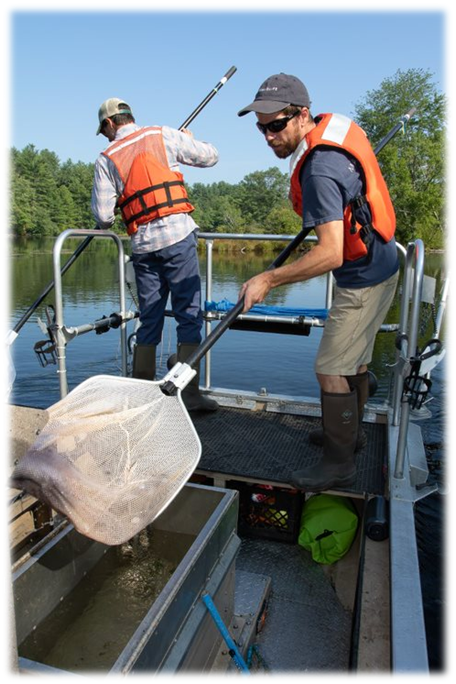
PIT (Passive Integrated Transponders) Tag Study on the Swift River
Movement and Population Dynamics of Wild Brook Trout in the Swift River Tailwater
Project Introduction
Biologists from the Massachusetts Division of Fisheries and Wildlife (MassWildlife) Connecticut Valley District and Westborough Field Headquarters have developed a field-based project to study the wild Brook Trout fishery in the Swift River tailwater between Quabbin Reservoir and the Swift River Impoundment in central Massachusetts. This project is designed to answer long-standing questions regarding 1) seasonal movement patterns and habitat use by adult Brook Trout using PIT tags in conjunction with a series of fixed PIT tag readers placed at important habitat and/or angling regulation boundaries within the tailwater, and 2) quantify population abundance, individual growth rates, and age and size structure of the wild Brook Trout population in the Swift River using mark-recapture methods. Continuous water temperature and water level loggers will also be deployed in conjunction with the PIT tag readers to assess movement and habitat use in association with environmental changes that are likely to influence coldwater fishes now and especially into the future under changing climate conditions.
This project will be run for three years (2022-2024) to capture some of the expected variability in Brook Trout population dynamics. Furthermore, with the initial investment in equipment, a number of projects could be developed in the future simply for the cost of additional PIT tags. For example, PIT tag studies can be used to answer multiple important questions regarding climate change and coldwater refugia as well as projects investigating the timing of spawning and spawning habitat use by Landlocked Atlantic Salmon in tributaries of Quabbin and Wachusett Reservoirs, and the movement and habitat use of Longnose Suckers and other coldwater fishes following dam removals or habitat restoration.
Background
The Swift River tailwater supports one of the most abundant populations of wild Brook Trout in Massachusetts based on comparisons of catch-per-unit-effort. Although true population estimates are not available, abundance estimates from electrofishing surveys indicate between 1000-4000+ wild Brook Trout/km of river, depending on which section of the tailwater is being assessed. The river also harbors more 300+ mm (~12 inches) wild Brook Trout than all other wild Brook Trout streams in Massachusetts, combined. This population is maintained by consistent annual flows and consistently cold water being released from deep in the hypolimnion of Quabbin Reservoir. All of these characteristics make the Swift River tailwater the premier wild Brook Trout fishery in Massachusetts.
The abundant population of wild Brook Trout, including numerous larger individuals, along with annual stocking of approximately 4000 hatchery trout (about 80% Rainbow Trout), together create an exceptional trout fishery. Couple the exceptional fishery resources with ample public access, extremely clear water, easy wading, and sometimes technical fishing and the Swift River tailwater is fast becoming a destination for avid trout anglers both near and far. Because of the unique wild Brook Trout fishery present in the Swift River tailwater and the overall popularity of this section of river it is imperative that we understand Brook Trout population dynamics and how they use the river in order to manage the fishery effectively over the long term. This project will be a big step in that direction.
Objectives
Methods
Data collection for this project will utilize in-stream Passive Integrated Transponder (PIT) arrays. PIT tags are relatively small individually identifiable internal tags that use RFID technology to remotely transmit tag data to field data loggers. The cost and size of these type of tags allows for the marking of relatively large numbers of individuals, and data collection across larger groups and populations. Tags will primarily be read by semi-permanent submerged antennae placed at discrete locations across the river channel. Tag data is recorded any time a tagged fish passes over each antenna, allowing for a variety of data relative to that individual. Additionally, these same tags can be read by handheld units during recapture events, when the fish are handled by biologists, and track growth through successive recaptures.
In-stream PIT Tag Arrays would be placed at meaningful locations and would aim to utilize natural choke-points, sites with minimum channel width and depth, maximizing read range and tag detection. Optimally, three arrays would be installed at significant locations between the Windsor Dam and the first Bondsville Dam. Each on-site reader will be outfitted with double antennae and have the ability to determine directionality of movement. Specific site selection would depend on a variety of variables, however at this time, locations would likely center around: the Rt 9 Bridge Year-Round Catch & Release Area, the Hatchery Outflow Pipe and Cady Lane, the demarcation between Impounded and Riverine Habitat downstream of the Cold Spring Road Boat Ramp, and just downstream of the Bondsville Dam (indication of emigration from study area). In the field, each array will consist of a large loop of wire housed in PVC and anchored to the stream bed. This loop will be connected to the data recording device and battery bank that will be housed nearby on the stream bank in a metal jobsite box. Appropriate signage and project information will be posted adjacent to field infrastructure. This equipment will remain onsite for the duration of the project until tag detection data collection is completed. It will require battery changes (solar power is also possible), data collection and downloads, as well as basic equipment maintenance and site upkeep.
Movement and Population Dynamics of Wild Brook Trout in the Swift River Tailwater
Project Introduction
Biologists from the Massachusetts Division of Fisheries and Wildlife (MassWildlife) Connecticut Valley District and Westborough Field Headquarters have developed a field-based project to study the wild Brook Trout fishery in the Swift River tailwater between Quabbin Reservoir and the Swift River Impoundment in central Massachusetts. This project is designed to answer long-standing questions regarding 1) seasonal movement patterns and habitat use by adult Brook Trout using PIT tags in conjunction with a series of fixed PIT tag readers placed at important habitat and/or angling regulation boundaries within the tailwater, and 2) quantify population abundance, individual growth rates, and age and size structure of the wild Brook Trout population in the Swift River using mark-recapture methods. Continuous water temperature and water level loggers will also be deployed in conjunction with the PIT tag readers to assess movement and habitat use in association with environmental changes that are likely to influence coldwater fishes now and especially into the future under changing climate conditions.
This project will be run for three years (2022-2024) to capture some of the expected variability in Brook Trout population dynamics. Furthermore, with the initial investment in equipment, a number of projects could be developed in the future simply for the cost of additional PIT tags. For example, PIT tag studies can be used to answer multiple important questions regarding climate change and coldwater refugia as well as projects investigating the timing of spawning and spawning habitat use by Landlocked Atlantic Salmon in tributaries of Quabbin and Wachusett Reservoirs, and the movement and habitat use of Longnose Suckers and other coldwater fishes following dam removals or habitat restoration.
Background
The Swift River tailwater supports one of the most abundant populations of wild Brook Trout in Massachusetts based on comparisons of catch-per-unit-effort. Although true population estimates are not available, abundance estimates from electrofishing surveys indicate between 1000-4000+ wild Brook Trout/km of river, depending on which section of the tailwater is being assessed. The river also harbors more 300+ mm (~12 inches) wild Brook Trout than all other wild Brook Trout streams in Massachusetts, combined. This population is maintained by consistent annual flows and consistently cold water being released from deep in the hypolimnion of Quabbin Reservoir. All of these characteristics make the Swift River tailwater the premier wild Brook Trout fishery in Massachusetts.
The abundant population of wild Brook Trout, including numerous larger individuals, along with annual stocking of approximately 4000 hatchery trout (about 80% Rainbow Trout), together create an exceptional trout fishery. Couple the exceptional fishery resources with ample public access, extremely clear water, easy wading, and sometimes technical fishing and the Swift River tailwater is fast becoming a destination for avid trout anglers both near and far. Because of the unique wild Brook Trout fishery present in the Swift River tailwater and the overall popularity of this section of river it is imperative that we understand Brook Trout population dynamics and how they use the river in order to manage the fishery effectively over the long term. This project will be a big step in that direction.
Objectives
- Track movement of tagged adult Brook Trout to determine overall movement, seasonal habitat use, and spawning locations for different size classes of fish and for fish initially tagged in different parts of the study area.
- Develop annual population estimates, as well as age structure and length-frequency, for Brook Trout and track population trends over the course of the study.
- Quantify estimates of recruitment, mortality, and growth for Brook Trout based on mark-recapture methods Communicate findings to other fisheries professionals via a peer-reviewed publication and conference presentations. Communicate findings with anglers.
Methods
Data collection for this project will utilize in-stream Passive Integrated Transponder (PIT) arrays. PIT tags are relatively small individually identifiable internal tags that use RFID technology to remotely transmit tag data to field data loggers. The cost and size of these type of tags allows for the marking of relatively large numbers of individuals, and data collection across larger groups and populations. Tags will primarily be read by semi-permanent submerged antennae placed at discrete locations across the river channel. Tag data is recorded any time a tagged fish passes over each antenna, allowing for a variety of data relative to that individual. Additionally, these same tags can be read by handheld units during recapture events, when the fish are handled by biologists, and track growth through successive recaptures.
In-stream PIT Tag Arrays would be placed at meaningful locations and would aim to utilize natural choke-points, sites with minimum channel width and depth, maximizing read range and tag detection. Optimally, three arrays would be installed at significant locations between the Windsor Dam and the first Bondsville Dam. Each on-site reader will be outfitted with double antennae and have the ability to determine directionality of movement. Specific site selection would depend on a variety of variables, however at this time, locations would likely center around: the Rt 9 Bridge Year-Round Catch & Release Area, the Hatchery Outflow Pipe and Cady Lane, the demarcation between Impounded and Riverine Habitat downstream of the Cold Spring Road Boat Ramp, and just downstream of the Bondsville Dam (indication of emigration from study area). In the field, each array will consist of a large loop of wire housed in PVC and anchored to the stream bed. This loop will be connected to the data recording device and battery bank that will be housed nearby on the stream bank in a metal jobsite box. Appropriate signage and project information will be posted adjacent to field infrastructure. This equipment will remain onsite for the duration of the project until tag detection data collection is completed. It will require battery changes (solar power is also possible), data collection and downloads, as well as basic equipment maintenance and site upkeep.
Endangered Species Protection
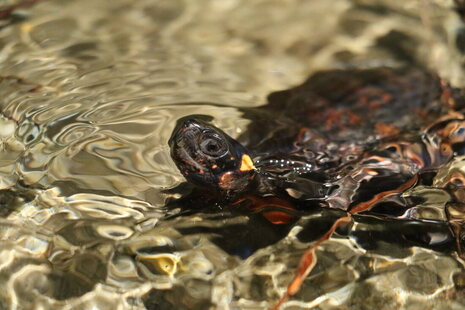
Bog Turtle Conservation through Radio Tracking
The MOHF provided funding to MassWildlife for a project to monitor the behavior and ecology of bog turtles (Glyptemys muhlenbergii) in Western Massachusetts. Bog turtles are a small, semiaquatic species listed as Endangered in Massachusetts and as Threatened under the federal Endangered Species Act due to their vulnerability to habitat loss and fragmentation.
The turtles are typically found in specialized groundwater wetland habitats known as fens, and they are threatened by a range of factors, including wetland degradation, invasive species, predation, and climate change. Radiotelemetry is an essential tool for monitoring bog turtles, which are otherwise very difficult to detect, allowing researchers to track the turtles' movements, analyze their habitat use, and monitor their survival over time.
The MOHF funding allowed MassWildlife to equip 20 bog turtles with radio transmitters, yielding valuable insights into their habitat use, home range, and survivorship. The data revealed significant differences in habitat use from previous decades and resulted in the discovery of a previously unknown activity area. The new area has subsequently been managed by MassWildlife and The Nature Conservancy to improve habitat quality. This information is essential for the conservation of bog turtles in Massachusetts and will guide habitat management efforts to protect and restore the rare wetland complexes essential to the species' survival.
The MOHF provided funding to MassWildlife for a project to monitor the behavior and ecology of bog turtles (Glyptemys muhlenbergii) in Western Massachusetts. Bog turtles are a small, semiaquatic species listed as Endangered in Massachusetts and as Threatened under the federal Endangered Species Act due to their vulnerability to habitat loss and fragmentation.
The turtles are typically found in specialized groundwater wetland habitats known as fens, and they are threatened by a range of factors, including wetland degradation, invasive species, predation, and climate change. Radiotelemetry is an essential tool for monitoring bog turtles, which are otherwise very difficult to detect, allowing researchers to track the turtles' movements, analyze their habitat use, and monitor their survival over time.
The MOHF funding allowed MassWildlife to equip 20 bog turtles with radio transmitters, yielding valuable insights into their habitat use, home range, and survivorship. The data revealed significant differences in habitat use from previous decades and resulted in the discovery of a previously unknown activity area. The new area has subsequently been managed by MassWildlife and The Nature Conservancy to improve habitat quality. This information is essential for the conservation of bog turtles in Massachusetts and will guide habitat management efforts to protect and restore the rare wetland complexes essential to the species' survival.
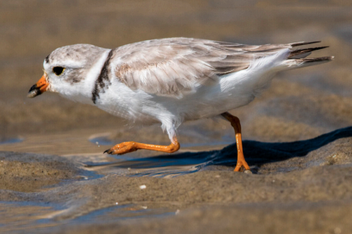
Scott Melvin Memorial Donations
Scott Melvin, former Senior Zoologist with the Natural Heritage and Endangered Species Program, was an internationally recognized leader in Piping Plover conservation. For over 30 years, he led the Commonwealth’s efforts to protect Piping Plovers. Scott passed away prematurely in 2014. MassWildlife accepts donations to honor Scott’s memory and his enduring contributions to wildlife conservation. To donate contact Karen Dolan at MassWildlife's Natural Heritage and Endangered Species Program (karen.dolan@mass.gov)
Scott Melvin, former Senior Zoologist with the Natural Heritage and Endangered Species Program, was an internationally recognized leader in Piping Plover conservation. For over 30 years, he led the Commonwealth’s efforts to protect Piping Plovers. Scott passed away prematurely in 2014. MassWildlife accepts donations to honor Scott’s memory and his enduring contributions to wildlife conservation. To donate contact Karen Dolan at MassWildlife's Natural Heritage and Endangered Species Program (karen.dolan@mass.gov)
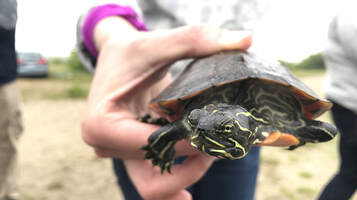
Marilyn Flor NHESP Fund and Amphibian & Reptile Conservation Fund
These two funds have supported conservation efforts for several species, including the Norther Red-bellied Cooter, a turtle listed on both federal and state endangered species lists. The Outdoor Heritage Foundation underwrites MassWildlife's successful Cooter Headstart Program, which you can read more about here. The Foundation is also contributing to rattlesnake conservation efforts and the Spadefoot restoration project.
These two funds have supported conservation efforts for several species, including the Norther Red-bellied Cooter, a turtle listed on both federal and state endangered species lists. The Outdoor Heritage Foundation underwrites MassWildlife's successful Cooter Headstart Program, which you can read more about here. The Foundation is also contributing to rattlesnake conservation efforts and the Spadefoot restoration project.
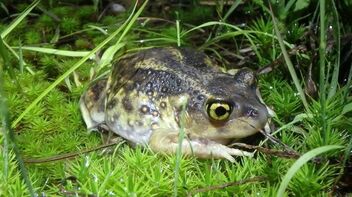
Spadefoot Success at Southwick WMA
In 2016, MassWildlife launched an effort to establish a secure population of the state-threatened eastern spadefoot at Southwick WMA. MassWildlife confirmed this population successfully bred for the first time in July 2021.
Eastern spadefoot (Scaphiopus holbrookii) is a toad-like amphibian that occurs at the northern limit of its geographic range in southern New England. A regionally imperiled species, it is state-listed as threatened in Massachusetts and endangered in both Connecticut and Rhode Island. Its conservation is an especially high priority in the Connecticut Valley region of Massachusetts, where centuries of human activity have altered habitat so extensively that only three local populations are believed to remain. That number may now be four, as MassWildlife recently confirmed breeding activity for the first time at the site of its experimental population introduction at the Southwick Wildlife Management Area (WMA). youtu.be/v-f9LhjH4k8
With financial support from the Massachusetts Outdoor Heritage Foundation, funded with grants from and on behalf of Dr. Richard Peters, Mass Wildlife’s Natural Heritage and Endangered Species Program (NHESP) began its endeavor to establish a new population of eastern spadefoot approximately 6 years ago. Identifying an appropriate site was complicated and required careful consideration of many ecological and operational factors. Eastern spadefoot has strict habitat requirements, not all of which are well understood.
First, the species requires loose or friable soils (sand and fine loams), as it lives most of its life underground and depends on use of a small, spade-like appendage on its hind feet to burrow downward into the soil column. Second, spadefoots require vernal pools in which to breed and deposit eggs. But not just any vernal pool will do—only those that tend to hold water for a few weeks at a time seem to be used.
Ultimately, the Southwick WMA was chosen as the site of the spadefoot introduction, as it appeared to have suitable soils and provide other essential benefits. However, vernal pools were absent and would need to be constructed. During summer 2015, MassWildlife partnered with the Southwick Department of Public Works and students at Westfield State University and Bristol County Agricultural High School (BCAHS) to build three pools. Pool function was monitored the following year to help ensure suitability for spadefoot reproduction, and translocations of eggs and tadpoles from a carefully chosen donor population commenced in 2017.
Eggs and tadpoles from the donor population were introduced directly to pools in 2017 and 2018. In addition, both the NHESP and BCAHS students captive-reared some eggs during 2017–2019 to release as mature tadpoles and young juvenile spadefoots. That practice, termed “headstarting”, is a supplemental strategy to help boost survival rates.
In southeastern states, where the climate supports a longer feeding season, eastern spadefoots reach sexual maturity in approximately 2 years. However, the cooler climate of New England is believed to limit feeding opportunities and delay maturity by an additional year or more. Therefore, determining an outcome of the introduction effort at Southwick would take some patience. Optimism was challenged during the past several years when surveys failed to detect surviving spadefoots, but then again, spadefoots are rather notorious for being elusive.
This year, rains during late spring and early summer sparked some hope for recovery from recent droughts, and the arrival of Tropical Storm Elsa on July 9 motivated spadefoot monitors regionwide to visit their sites with the possibility of a late-season breeding event in mind. NHESP Conservation Scientist Jacob Kubel went to the Southwick WMA with a primary objective to confirm that at least some spadefoots had survived to adulthood and stayed on the site. What he found was even better: spadefoot tadpoles in one pool, followed by at least 30 breeding adults in another. Eggs and recently hatched tadpoles were confirmed at the latter pool 2 days later.
“It was a big night for the project,” said Kubel, “and these early results give us hope that it will be feasible to regain some lost ground in New England through active management.”
return to projects top
MassWildlife Wildlife Lands Acquisition, Protection and Enhancement
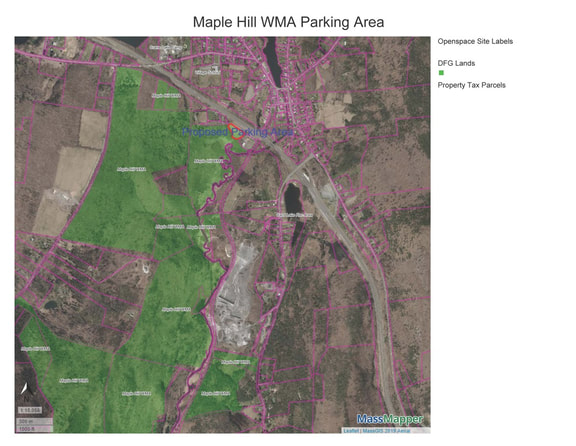
Williams River Access Project
The Massachusetts Division of Fisheries and Wildlife recently acquired the 49-acre Naventi property along Moscow Road in West Stockbridge. This new acquisition became part of the Maple Hill Wildlife Management Area (WMA). The property added significant access to the Williams River and provides an eastern access to the larger WMA. MassWildlife will partner with Massachusetts Outdoor Heritage Foundation (MOHF) to build a small parking area, which would greatly improve access to the Williams River and the WMA. Funds for this project were donated by the Friends of the Willliams River.
Project Overview: MassWildlife will oversee construction of a small parking area in the abandoned agricultural field off Moscow Road funded by the MOHF. The parking area will accommodate 3 vehicles and have a surface of crushed stone.
Project Benefits: Hunters will use the parking area to access the wetlands and uplands of the Maple Hill WMA. Anglers will use the area to access the Williams River which is stocked each spring with trout. A kayak or small canoe could be dragged to the river allowing downstream access for miles.
Project Overview: The property includes 516 feet of road frontage on the south side of Moscow Road. This property abuts the 596-acre Maple Hill Wildlife Management Area (WMA) and contains 5,000 feet of frontage on the west side of the Williams River, an excellent Coldwater Fisheries Resource (CFR) that is stocked annually by MassWildlife. The Williams River is one of the major contributing tributaries in the Massachusetts portion of the Housatonic Watershed. Conditions in the Williams have a direct impact on the temperature, water quality, and water quantity in the mainstem of the Housatonic River. Protecting the floodplain and the upper reach of this important tributary has direct benefits to injured natural resources in the Housatonic River.
Permanent protection of the Naventi parcel will provide enhanced recreational access and opportunities for fishing and boating in the Williams River, a benefit to the region’s sportsmen and sportswomen.
The Massachusetts Division of Fisheries and Wildlife recently acquired the 49-acre Naventi property along Moscow Road in West Stockbridge. This new acquisition became part of the Maple Hill Wildlife Management Area (WMA). The property added significant access to the Williams River and provides an eastern access to the larger WMA. MassWildlife will partner with Massachusetts Outdoor Heritage Foundation (MOHF) to build a small parking area, which would greatly improve access to the Williams River and the WMA. Funds for this project were donated by the Friends of the Willliams River.
Project Overview: MassWildlife will oversee construction of a small parking area in the abandoned agricultural field off Moscow Road funded by the MOHF. The parking area will accommodate 3 vehicles and have a surface of crushed stone.
Project Benefits: Hunters will use the parking area to access the wetlands and uplands of the Maple Hill WMA. Anglers will use the area to access the Williams River which is stocked each spring with trout. A kayak or small canoe could be dragged to the river allowing downstream access for miles.
Project Overview: The property includes 516 feet of road frontage on the south side of Moscow Road. This property abuts the 596-acre Maple Hill Wildlife Management Area (WMA) and contains 5,000 feet of frontage on the west side of the Williams River, an excellent Coldwater Fisheries Resource (CFR) that is stocked annually by MassWildlife. The Williams River is one of the major contributing tributaries in the Massachusetts portion of the Housatonic Watershed. Conditions in the Williams have a direct impact on the temperature, water quality, and water quantity in the mainstem of the Housatonic River. Protecting the floodplain and the upper reach of this important tributary has direct benefits to injured natural resources in the Housatonic River.
Permanent protection of the Naventi parcel will provide enhanced recreational access and opportunities for fishing and boating in the Williams River, a benefit to the region’s sportsmen and sportswomen.
Ashfield-Hawley Wildlife Management Area
The Outdoor Heritage Board of Directors also helped with the acquisition of the 278-acre Wildlife Management Area (WMA) on the Ashfield-Hawley line by providing professional assistance and support to MassWildlife. This acquisition was made using a $275,000 bequest from the estate of Calvin and Annette Farrell, which specified that it be used to acquire a WMA anywhere in Western Massachusetts.
The Outdoor Heritage Board of Directors also helped with the acquisition of the 278-acre Wildlife Management Area (WMA) on the Ashfield-Hawley line by providing professional assistance and support to MassWildlife. This acquisition was made using a $275,000 bequest from the estate of Calvin and Annette Farrell, which specified that it be used to acquire a WMA anywhere in Western Massachusetts.
190 Scotland Road, Newbury
Scotland Road is a very important addition to MassWildlife's protected lands. This 24.5-acre parcel is embedded (bound on three sides) in the Martin Burns Wildlife Management Area, and had been proposed for development as a subdivision of 21 private homes, some of which would have been built 10-15 feet from the management area's boundary. With the Scotland Road parcel as an access point and a new woods road generously constructed by the former owner to accommodate large forestry equipment, MassWildlife's Forestry and Upland programs now have management access to 800 acres in the northern half of Martin Burns WMA, the southern end of which is already actively being restored to shrubland habitat by the Upland Program. This same access road also provides expanded (albeit limited) parking for the hunters and hikers who enjoy this management area. This exciting project was accomplished with the assistance of a major gift from a private citizen and avid sportsman, and in partnership with MassWildlife and the Essex County Greenbelt Association.
Scotland Road is a very important addition to MassWildlife's protected lands. This 24.5-acre parcel is embedded (bound on three sides) in the Martin Burns Wildlife Management Area, and had been proposed for development as a subdivision of 21 private homes, some of which would have been built 10-15 feet from the management area's boundary. With the Scotland Road parcel as an access point and a new woods road generously constructed by the former owner to accommodate large forestry equipment, MassWildlife's Forestry and Upland programs now have management access to 800 acres in the northern half of Martin Burns WMA, the southern end of which is already actively being restored to shrubland habitat by the Upland Program. This same access road also provides expanded (albeit limited) parking for the hunters and hikers who enjoy this management area. This exciting project was accomplished with the assistance of a major gift from a private citizen and avid sportsman, and in partnership with MassWildlife and the Essex County Greenbelt Association.
Three Mile Pond Access Improvements
Private-public partnership enhances access to Three Mile Pond. Hunters, paddlers, and wildlife watchers will all benefit from the improvements at Three Mile Pond in Sheffield.
Private-public partnership enhances access to Three Mile Pond. Hunters, paddlers, and wildlife watchers will all benefit from the improvements at Three Mile Pond in Sheffield.
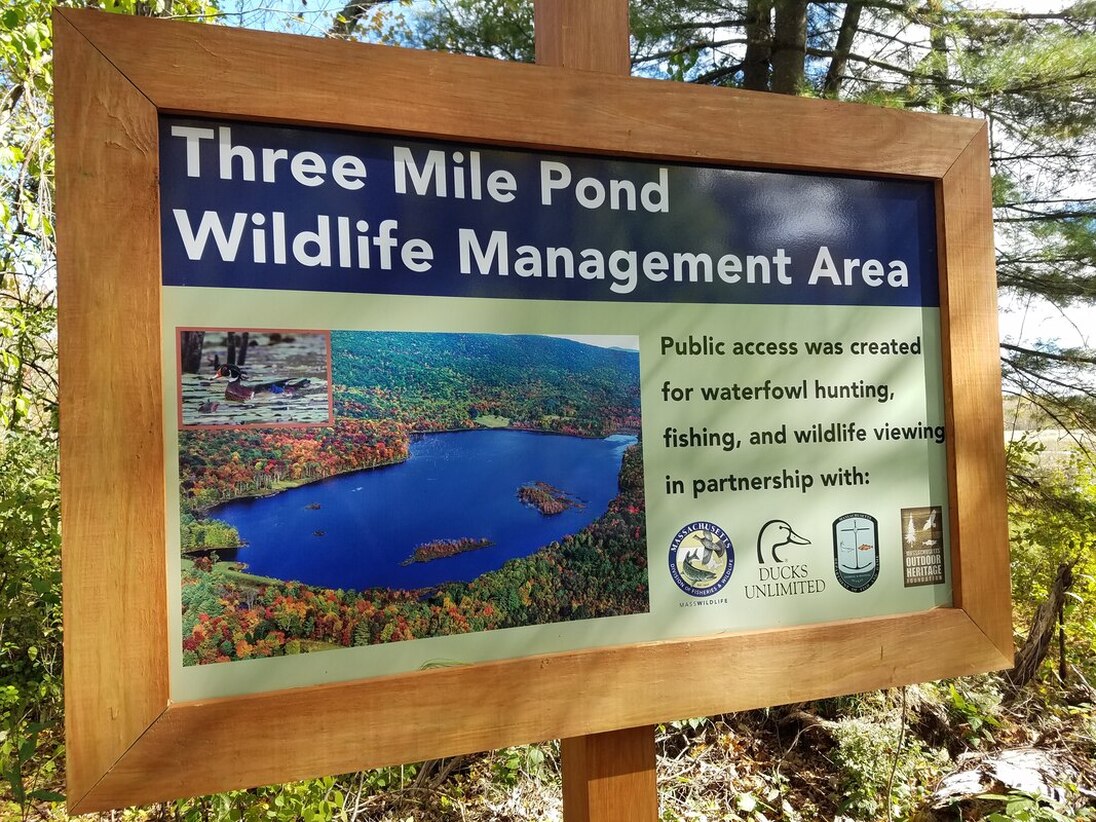
SHEFFIELD — Public access at a popular recreation site in Sheffield got a facelift this year. An existing boat access site at Three Mile Pond was improved and a new gravel parking lot and additional boat access site were created in an old roadway at the upper end of the pond. Both boat access sites are suitable for launching a canoe, kayak, or other small boat; they function primarily as car-top access sites. In addition, two new signs were installed noting the public access locations and available opportunities for waterfowl hunting, fishing, and wildlife viewing.
Financial support for the project came from Ducks Unlimited (DU) with matching funds provided by the Massachusetts Outdoor Heritage Foundation. Technical expertise and implementation were directed by the Office of Fishing and Boating Access with assistance from MassWildlife’s Western District Office.
The 160-acre pond and adjacent wetlands are part of the 1000+-acre Three Mile Pond Wildlife Management Area (WMA) managed by MassWildlife for wildlife, habitat, and wildlife-related recreation. The WMA is stocked with pheasants in the fall and mowed annually to maintain field and shrubland habitat for many kinds of wildlife.
Officials from collaborating groups gathered in mid-October to celebrate the project—each praising the many recreational benefits that come with enhanced access. “The Foundation is excited to enhance access to Three Mile Pond for hunters, paddlers, wildlife enthusiasts, and most importantly future generations of outdoorspeople—an activity which aligns with the Foundation’s mission,” said MOHF board member and former Secretary of Environmental Affairs Bob Durand. “It was great to partner with DU and MassWildlife on this important project.”
“We truly appreciate the commitment of Ducks Unlimited and the Massachusetts Outdoor Heritage Foundation who provided the funds to make this project a reality,” said MassWildlife Director Mark Tisa. “Access to the outdoors is in high demand in Massachusetts and this project helps address the outdoor community’s needs.”
“The Department of Fish and Game is happy to see the partnerships with NGOs such as the Outdoor Heritage Foundation and Ducks Unlimited continue to grow,” said Department of Fish and Game Commissioner Ron Amidon. “Anytime we can help with access projects to support outdoor recreation, our engineering staff from the Office of Fishing and Boating Access is pleased to contribute.”
“DU would like to thank the partners for advancing such a great access project,” said Sarah Fleming, DU’s Manager of Conservation Programs in the North Atlantic. “We are pleased to be able to support our partners, volunteers and outdoor enthusiasts by helping increased access to public recreational areas that all users can enjoy. We look forward to continuing to work with the Massachusetts Outdoor Heritage Foundation and MassWildlife on other projects that will not only benefit waterfowl and other wetlands wildlife but will also benefit people.”
Youth Education
Teaching with Trout
Since 2016, Outdoor Heritage has supported the Teaching with Trout program at MassWildlife. Students raise Brook Trout from eggs during the winter, then release them into approved lakes and streams in the spring. Teachers use this program to introduce their students to the concepts of ecology, biology, water quality, and conservation. In addition to learning these valuable lessons, Teaching with Trout offers a great way to connect students to their local environment. For an example of this concept in action, read this article about a teacher in Haverhill and his experience with this program.
The National Archery in the Schools Program (NASP)
The National Archery in the Schools Program (NASP) has come to Massachusetts, in partnership with the Archery Trade Association, the Division, and the Foundation, to promote student education and lifelong interest and participation in the sport of archery and an active engagement in outdoor pursuits. NASP offers international-style target archery training as part of an in-school archery curriculum for grades 4-12 that can be used as a tool in teaching social studies, mathematics, and physical education. Ten pilot schools adopted NASP and incorporated it into their curricula in 2010. Outdoor Heritage coordinated donors to establish NASP in two schools in 2011. Thanks to donations from Safari Club International and the Worcester County League, in 2013 a loaner kit was purchased for schools that are trained and certified but couldn't afford their own kit. They can now teach the program at no cost. As of June 2018, 140 schools across the state have been trained and certified to teach NASP as part of the in-school curriculum. Throughout the years, Safari Club International (SCI) New England Foundation has been a major supporter of this program by contributing funds necessary to purchase archery kits and Basic Archery Instructor (BAI) packets for many of these schools. mass.gov/how-to/archery-in-the-schools
Since 2016, Outdoor Heritage has supported the Teaching with Trout program at MassWildlife. Students raise Brook Trout from eggs during the winter, then release them into approved lakes and streams in the spring. Teachers use this program to introduce their students to the concepts of ecology, biology, water quality, and conservation. In addition to learning these valuable lessons, Teaching with Trout offers a great way to connect students to their local environment. For an example of this concept in action, read this article about a teacher in Haverhill and his experience with this program.
The National Archery in the Schools Program (NASP)
The National Archery in the Schools Program (NASP) has come to Massachusetts, in partnership with the Archery Trade Association, the Division, and the Foundation, to promote student education and lifelong interest and participation in the sport of archery and an active engagement in outdoor pursuits. NASP offers international-style target archery training as part of an in-school archery curriculum for grades 4-12 that can be used as a tool in teaching social studies, mathematics, and physical education. Ten pilot schools adopted NASP and incorporated it into their curricula in 2010. Outdoor Heritage coordinated donors to establish NASP in two schools in 2011. Thanks to donations from Safari Club International and the Worcester County League, in 2013 a loaner kit was purchased for schools that are trained and certified but couldn't afford their own kit. They can now teach the program at no cost. As of June 2018, 140 schools across the state have been trained and certified to teach NASP as part of the in-school curriculum. Throughout the years, Safari Club International (SCI) New England Foundation has been a major supporter of this program by contributing funds necessary to purchase archery kits and Basic Archery Instructor (BAI) packets for many of these schools. mass.gov/how-to/archery-in-the-schools
Wildlife Understanding and Appreciation
Living Waters publication
Outdoor Heritage provided outreach and distribution support for MassWildlife's Natural Heritage & Endangered Species Program's conservation map project to identify priority aquatic habitats for freshwater biodiversity conservation in Massachusetts.
Boy Scouts of America Centennial Celebration, Mohegan Council, Worcester County
In partnership with MassWildlife and the Mohegan Council's Boy Scout Troop 110, the Foundation donated materials for a bluebird nest-box-building station, where visitors to the Centennial Celebration received guidance and help from the Boy Scouts to build almost 1,000 blue bird boxes and learn about improving wildlife habitat through next boxes. Plans were also provided to visitors for Wood Duck, Kestrel, and bat houses.
MassWildlife's Turtles of Massachusetts and Hatchling Turtles of Massachusetts posters (10,000 of each)
A reprint of these very popular posters is now available at all MassWildlife offices in honor of the Year of the Turtle, as designated by the Partners in Amphibian and Reptile Conservation (PARC), to highlight the importance of habitat and species conservation of native turtles in Massachusetts.
Turtles of Massachusetts Quick-ID Cards (300 sets, distributed to and through Project WILD facilitators)
Originally developed by MassWildlife staff to provide turtle-identification training to utility workers on rights-of-way within Priority Habitat for turtles, additional sets of these convenient flip-cards were printed with help from a generous donor to facilitate the study of native turtles in their natural habitats by participants in Project WILD, a grade-school-level wildlife education program of MassWildlife.
Outdoor Heritage provided outreach and distribution support for MassWildlife's Natural Heritage & Endangered Species Program's conservation map project to identify priority aquatic habitats for freshwater biodiversity conservation in Massachusetts.
Boy Scouts of America Centennial Celebration, Mohegan Council, Worcester County
In partnership with MassWildlife and the Mohegan Council's Boy Scout Troop 110, the Foundation donated materials for a bluebird nest-box-building station, where visitors to the Centennial Celebration received guidance and help from the Boy Scouts to build almost 1,000 blue bird boxes and learn about improving wildlife habitat through next boxes. Plans were also provided to visitors for Wood Duck, Kestrel, and bat houses.
MassWildlife's Turtles of Massachusetts and Hatchling Turtles of Massachusetts posters (10,000 of each)
A reprint of these very popular posters is now available at all MassWildlife offices in honor of the Year of the Turtle, as designated by the Partners in Amphibian and Reptile Conservation (PARC), to highlight the importance of habitat and species conservation of native turtles in Massachusetts.
Turtles of Massachusetts Quick-ID Cards (300 sets, distributed to and through Project WILD facilitators)
Originally developed by MassWildlife staff to provide turtle-identification training to utility workers on rights-of-way within Priority Habitat for turtles, additional sets of these convenient flip-cards were printed with help from a generous donor to facilitate the study of native turtles in their natural habitats by participants in Project WILD, a grade-school-level wildlife education program of MassWildlife.
